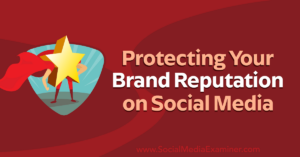Launched in 2012, YourStory’s Book Review section features over 345 titles on creativity, innovation, entrepreneurship, and digital transformation. See also our related columns The Turning Point, Techie Tuesdays, and Storybites.
The Startup Guide series of books, launched in 2014 by Copenhagen-based publisher Sissel Hansen, covers over 40 cities around the world. See our reviews of the guidebooks for New York, Berlin, Zurich, Paris, Barcelona, Stockholm, Johannesburg, Nairobi, Tokyo, Bangkok, and Singapore.
“Graz is well known as a UNESCO City of Design and a strong academic center with eight universities and a large share of student population,” says Sissel Hansen. The city has scenic surroundings, lower living costs, small-town vibes, and great connection to Vienna and neighbouring countries.
There are strengths in industry sectors such as mobility, biotech, life sciences, energy, greentech, microelectronics, creative industries, and tourism, adds Günter Riegler, City Councillor for Economy, Science, and Culture.
With extensive support from local partners, the material in Startup Guide Graz is spread across 250 pages and makes for an informative and inspiring read. There are in-depth profiles of founders, co-working spaces, incubators, and other ecosystem players (see highlights in the table below). The material is insightful, superbly illustrated, and well-designed.
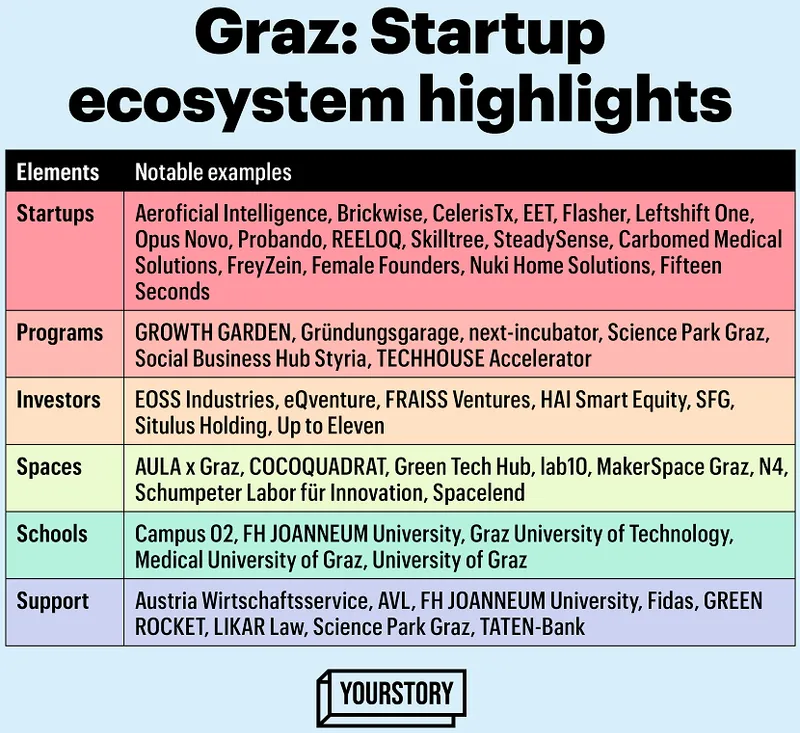
Overview
“Graz, the city that combines history and innovation, is from our point of view the ideal place to start up and grow into the world,” according to Andrea Keimel, Head of the Department for Economic and Tourism Development; and Angelika Mitteregger, Project Manager for Founders, Startups and Innovation.
Graz, the second-largest city in Austria, has a strong university-research spirit with many startup spinoffs from universities. More than 1,400 new companies are reportedly founded in Graz every year. In 2020, there were a total of 1,500 startups in the city.
With a popular of just over 330,000, Graz has a small-town feel but also offers the opportunity of a big city. It is regarded as a beachhead for launching businesses into Central Europe, with cultural and business links to Germany, Slovenia, and the Western Balkans.
One section of book provides overviews of doing business in Graz, local culture (polite and friendly), transportation (good bicycling infrastructure), language (basic German skills are a necessity), and networking (beer helps).
University students make up one sixth of the population, and there are effective university linkages. Notable startups include teambuilding company Teamazing, Usound (micro-speakers), Celeris Therapeutics (biotech), Kilobaser (DNA), and iTranslate.
Graz is also home to a number of industry clusters such as automobile cluster AC Styria, Green Tech Cluster Styria, Human.technology Styria Cluster, Silicon Alps Electronic Cluster, and the Creative Industries Styria Cluster. They initiate growth through innovation and networking.
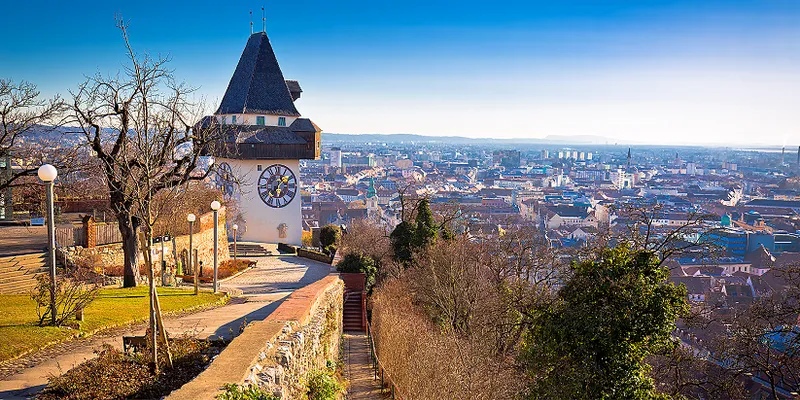
Startups
Eleven startups are profiled in the book, including Brickwise (mobile broker for real estate) and EET (solar power and storage),
Aeroficial Intelligence is an aerospace tech company with optimisation solutions for the air traffic, airport, and airline industry. Leftshift One provides an AI toolbox for text analysis, image recognition, email automation, and ticketing. Skilltree helps HR heads manage their employees’ skills and growth.
Deep learning company CelerisTx helps pharmaceutical companies develop better drugs faster. Probando has developed platform for clinical trials to connect researchers and participants.
SteadySense has designed tools like adhesive smart patches to detect body temperature and give women indicators of when they are ovulating. Opus Novo has motion-detection devices to track movement of elders at night and to alert caregivers.
REELOQ has developed accessories that keep smartphones and cameras safe during outdoor activities. Flasher makes safety wearables for cyclists and e-scooter riders.
Journeys and achievements of these startups are profiled, many of whom received support from the Science Park Graz incubator, Austrian Research Promotion Agency, European Space Agency, Austrian Federal Fire Brigade Association, and even Singapore Aviation Accelerator.

Programmes
A range of incubator and accelerator programmes help strengthen the startup ecosystem in Graz. For example, Social Business Hub Styria supports social enterprises. TECHHOUSE Accelerator is focused on sustainability, AI, Industry 4.0, financial services, and healthtech.
GROWTH GARDEN offers support for startups addressing the UN’s Sustainable Development Goals. It helps founders in key steps like the RAT (Riskiest Assumption Test).
Gründungsgarage is an academic startup accelerator for students and researchers in the pre-seed phase. It has support from over thirty mentors.
Energy supplier Energie Steiermark founded next-incubator. Science Park Graz accepts ten startups each year into the 18-month AplusB programme.
Leaders of these programmes offer a wide range of tips for founders on purpose, mindset and ethics. Entrepreneurs should be team players and build on each other’s ideas.
They should be curious and be willing to leave their comfort zone. They should be willing to be coached and mentored.
They should come up with market-ready ideas that have concrete potential and scalable solutions. The startup team should be diverse but with shared goals. For the long run, founders should have stamina, resilience, patience, persuasion, and flexibility.

Spaces
Graz has a wide range of attractive co-working spaces, fablabs, and makerspaces such as Spacelend and COCOQUADRAT. One section of the book describes the facilities and offerings, along with manager profiles.
AULA has four locations, two of which are in Graz. They are designed to inspire societal and climate awareness. Green Tech Hub is located in the Science Tower in the Green Tech Valley.
Schumpeter Labor für Innovation at Graz University of Technology’s Institute of Innovation and Industrial Management is an academic makerspace built on 15 years of experience in open innovation projects.
Thomas Zeinzinger, the founder of lab10, had a successful career in the automotive and energy industries. Thomas Schwarzl, the founder of MakerSpace, spent many years in the IT industry. Angelika Mitteregger, the strategic lead at N4, was earlier an innovation consultant for corporates.
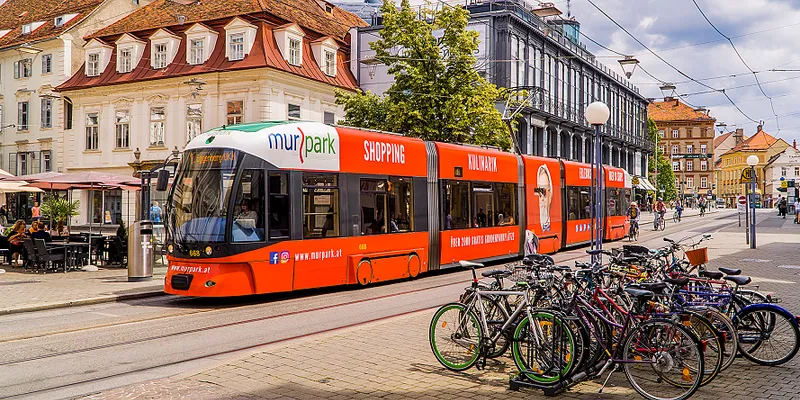
Expert advice
Domain experts from eight organisations offer a range of advice for aspiring entrepreneurs on strategy, pricing, and governance.
Startups should develop an SDG impact orientation right from the start, according to Marlis Baurecht, Business Unit Manager for Entrepreneurship, IP Rights and Seed financing at promotional bank Austria Wirtschaftsservice.
“Corporate-startup partnerships are successful if there’s someone who can speak both languages, bridge both worlds, and if there are processes that facilitate the collaboration,” advises Sebastian Jagsch, Global Head, Creators Expedition at automotive solutions firm AVL.
“It’s always good to be passionate about your idea, product, or service. But you need to validate whether it really solves a problem,” says Doris Kiendl, Head, Department of Management at FH JOANNEUM University of Applied Sciences. For foreign-market entry, it is important to team up with partners on the ground.
When registering the company, founders should think about the different kinds of structures, risk, taxation, liability, and attractiveness to future investors, according to Florian Huber, Managing Director at tax consultancy Fidas.
Startups should clearly understand the different types of funding options and when they are feasible, explains Wolfgang Deutschmann, Managing Director and Cofounder at GREEN ROCKET, a crowdfunding platform for sustainable startups.
Founders should have clear contracts in place covering liabilities and warranties. This also makes the startup more attractive to investors, suggests Arno Likar, Executive Partner, and Founder at LIKAR Law.
Founders should recruit people who can work together well, advises Martin Mössler, Managing Director at startup incubator Science Park Graz. “You need to know more than just a CV; you need to know how these people are in the workplace,” he adds.
Changing the management mindset to one that embraces freedom over control can be difficult for founders who have spent years in large companies, he cautions. “The most important form of compensation is a feeling of appreciation, of being welcome, of being more than a resource,” Martin affirms.
Banks can also be effective startup partners for building scalable businesses, according to Hannes Meixner, Head of Startups and Investor Network at TATEN-Bank, and Martina Hölzl, Head of Startups and Public Funding. The bank provides startup-friendly accounts, loans, and grants.
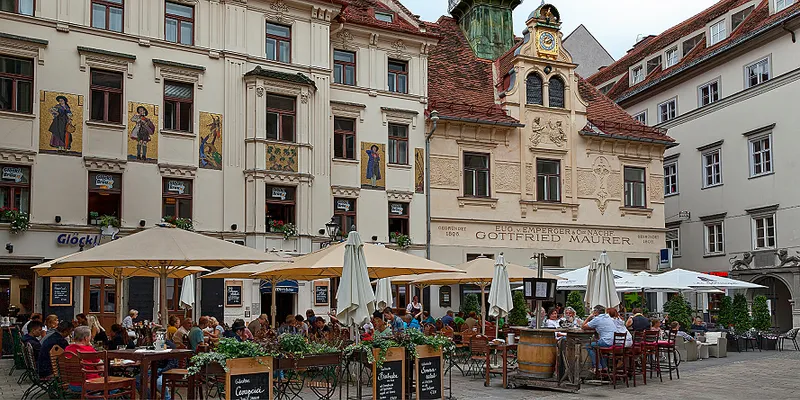
Founders
An outstanding section of the book features in-depth interviews with five founders, tracing their journeys, pivots, challenges, learnings, and tips.
“As soon as you have the first reference market, you’ve taken a big step towards eventual success,” advises Bastian Rüther, CEO of Carbomed Medical Solutions.
The company benefited from exposure in the TV show 2 Minutes 2 Million, and was supported by the Merck accelerator and EIT Health Startups Meet Pharma accelerator. Getting industry certifications can involve a lot of resources and are very complex.
“Behave like a swan: struggling under the water but looking good above the surface,” he adds, citing the best piece of advice he received.
During a surfing trip to the Azores, Jan Karlsson got the inspiration to make his outerwear firm FreyZein “radically natural” with biodegradable or recyclable materials.
“One of the greatest lessons I have personally learned is how to deal with stress and how to shift my mindset. I prefer not to see them as obstacles but ultimately as opportunities for learning,” he recalls.
“Even when there are struggles that may stress you out or distract you, the journey is actually just as important as the end goal or ambition,” Jan affirms.
“Find your flow. Those flow states are magical! Get there,” he urges founders.
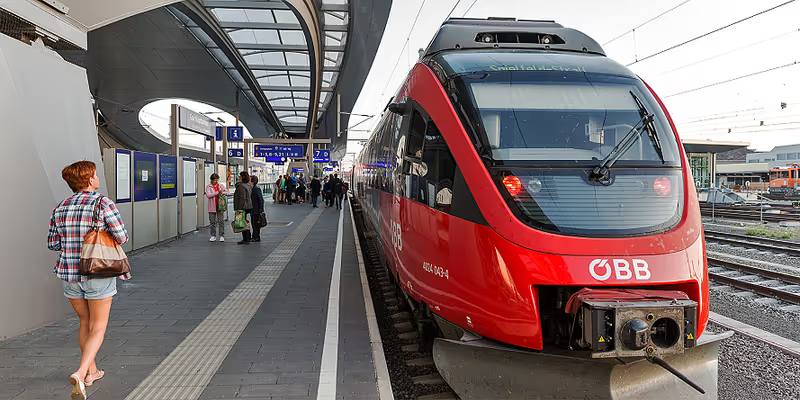
“Developing leadership skills is one of the biggest challenges because you get lost in everyday operations, product, sales, etc.,” observes Lisa-Marie Fassl, CEO and Co-founder of Female Founders, a community for entrepreneurial women.
She runs accelerator programmes for women founders, and co-founded Ideentriebwerk Graz, Austria’s largest student-run startup organisation. She also joined the Austrian Angel Investors Association.
“Entrepreneurship is more than starting companies; it’s empowerment,” Lisa-Marie affirms. The pandemic was a tough time as well. “We completely lost focus during the pandemic because – and this is natural for entrepreneurs – you see opportunities everywhere,” she recalls.
Martin Pansy is CEO of Nuki Home Solutions, which develops digital locks. He describes how their first choice of name (Noki – no key) clashed with ‘Nokia,’ and so they chose a new name (Nuki – new key).
“We were definitely overambitious when it came to developing a mature hardware product,” he recalls. “I have the right mindset of being neither an optimist nor a pessimist: I’m a realist,” he adds.
“The toughest challenges are often the ones most worthwhile attempting,” Martin advises.
Stefan Stücklschweiger founded Fifteen Seconds to do the three things that he had a passion for: marketing, sales and events. His startup runs a major innovation festival, as well as workshops, management retreats, and coaching.
Success is measured by positive experiences, not just bottom lines. “If you work with passion, you can beat every naysayer,” Stefan advises.
Many of the founders commend the Graz ecosystem for having great tech talent and a good startup community. The “largest village in the world” is not just beautiful, but also well-connected to production facilities in central and eastern Europe.
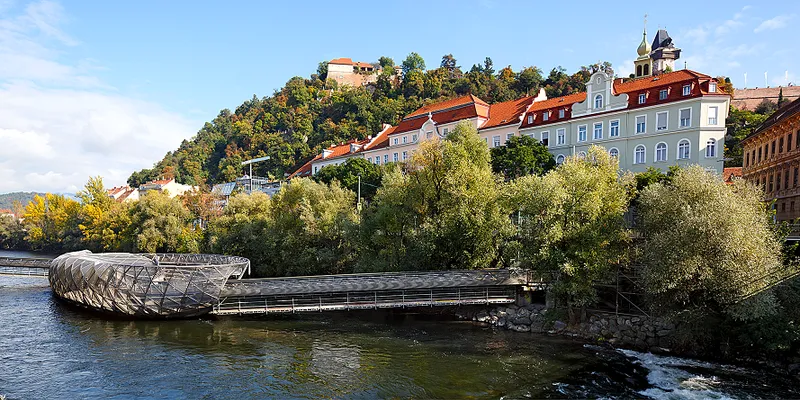
Schools
Graz has a number of technology and management school programmes supporting entrepreneurship education, such as FH JOANNEUM University of Applied Sciences.
Graz University of Technology spawned more than 200 projects over 20 years, such as the solar energy solutions startup EET (Efficient Energy Technology). Graz’s Campus 02 runs an innovation management program, and supported startups like blockchain company Block 42.
Medical University of Graz runs the Center for Knowledge and Technology Transfer in Medicine, and also hosts an accelerator.
University of Graz, the second-oldest higher-learning institution in Austria, runs a range of knowledge exchange partnerships internationally, such as the Utrecht Network and Coimbra Group, and the Transatlantic Entrepreneurship Academy with Montclair State University in New Jersey.
Leaders of these institutes advise founders to have an open mind and a global outlook. They should be empathetic, and be open to self-reflection. They should evolve into leaders, who can sell their cause to others and also be able to handle pressure.
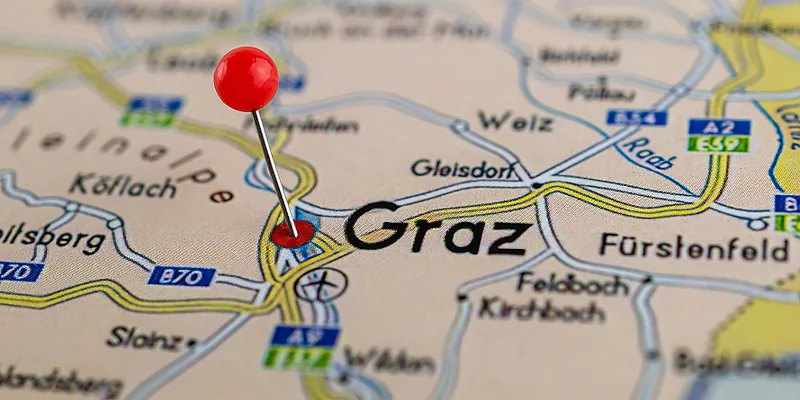
Investors
A range of investors has tasted success with the startup ecosystem in Graz. For example, EOSS Industries has invested in over 50 different companies.
eQventure, an investment club of ex-founders, invests around €20 million in equity per year. It has supported startups such as SteadySense and Leftshift One, and achieved 35 successful exits.
Situlus Holding has supported team management startup Teamazing and QUS, which produces sensor-enabled clothing. Other investors in startup space are FRAISS Ventures, Up to Eleven, Styrian Business Promotion Agency, and HAI Smart Equity business angels.
The investors offer valuable tips for founders as well. Founders should be authentic and know their strengths and weaknesses. They should develop unique ideas and approaches, and be ready to partner with others to scale the market.
They should protect their IP, and be succinct in investor communications. Founders should also be able to work with multiple co-investors.
The book ends with a directory of resources for entrepreneurs. For example, local startup connections and events are offered by Gründermesse, Gründungsgarage, Ideentriebwerk, and Junge Wirtschaft. Ideentriebwerk hosts the annual showcase Startup Playground and networking event Startup Spritzer.
In sum, the book is essential reading for anyone interested in starting up a business, whether they’re new to the city or to the startup lifestyle.
The book provides inspiring and practical insights into Graz’s startup ecosystem, as well as a useful framework for other cities to reflect on and improve their own startup ecosystems.
YourStory has also published the pocketbook ‘Proverbs and Quotes for Entrepreneurs: A World of Inspiration for Startups’ as a creative and motivational guide for innovators (downloadable as apps here: Apple, Android).

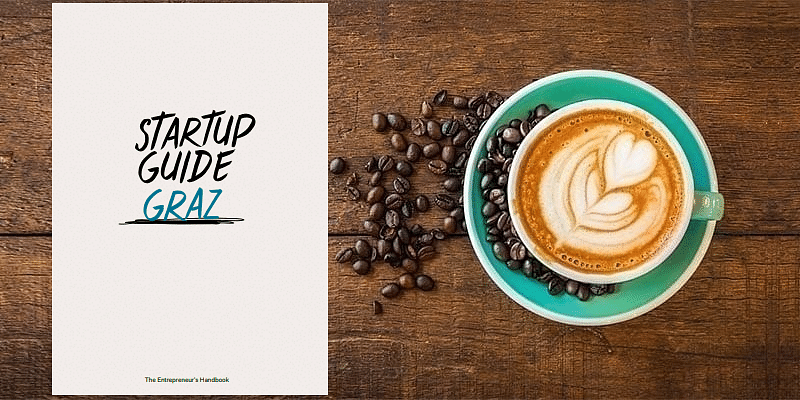
![Read more about the article [Funding alert] Agritech startup Arya.Ag raises $60M in Series C round](https://blog.digitalsevaa.com/wp-content/uploads/2022/01/CopyofImageTaggingNewBrandingEditorialTeamMaster-1642439483897-300x150.jpg)

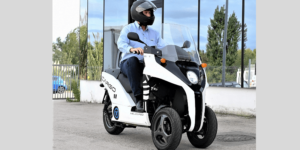

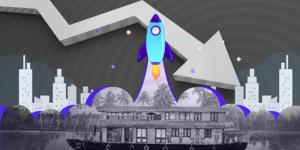
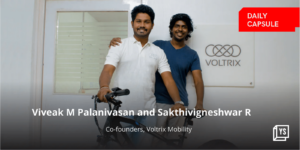
![Read more about the article [Weekly funding roundup May 29-June 2] VC funding rises sharply](https://blog.digitalsevaa.com/wp-content/uploads/2022/11/funding-roundup-LEAD-1667575602969-300x150.png)

